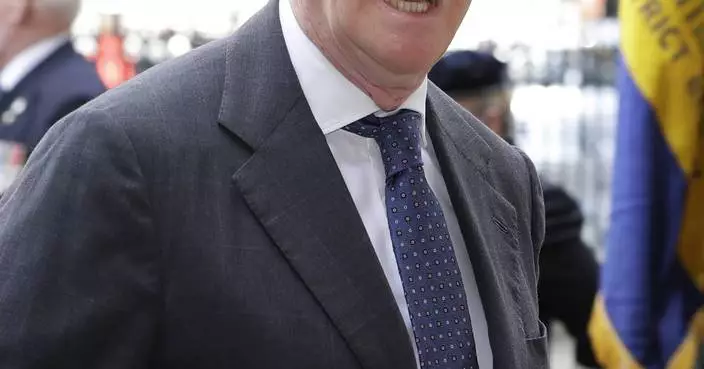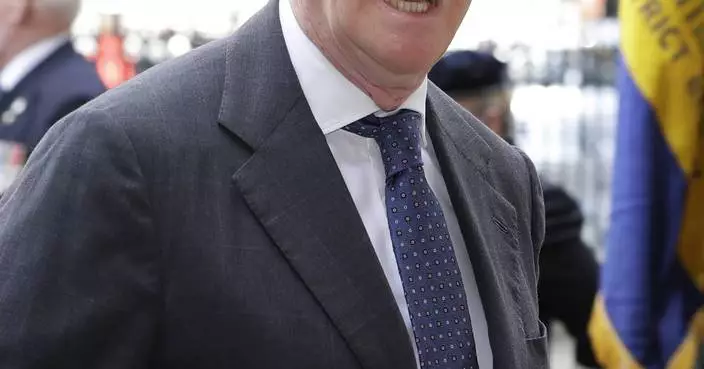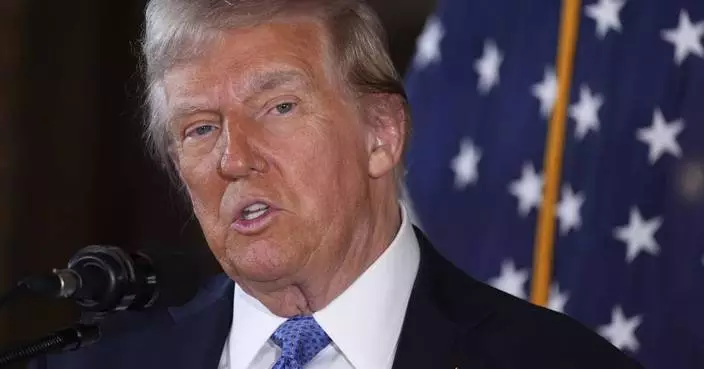Democrat Pete Buttigieg (BOO'-tuh-juhj) is following up his first presidential debate with a big fundraising weekend, including a New York event with a group that has contributed millions of dollars to openly LGBT candidates.
LGBTQ Victory Fund President Annise Parker says she will join Buttigieg at a World Pride campaign event in Brooklyn on Friday "to make a historic special announcement."
Parker said earlier this year the organization expected to endorse the openly gay mayor of South Bend, Indiana. An endorsement would provide immediate financial support from the group, which invested $2 million in candidates in 2018.

Democratic presidential candidate and South Bend Mayor Pete Buttigieg looks on during a town hall community meeting, Sunday, June 23, 2019, at Washington High School in South Bend, Ind. Buttigieg faced criticism from angry black residents at the emotional town hall meeting, a week after a white police officer fatally shot a black man in the city. (Robert FranklinSouth Bend Tribune via AP)
Buttigieg has other fundraising events planned for the final days of the second quarter, which ends Sunday. The events include a birthday celebration for his husband that will coincide with New York gay pride festivities.

FILE - In this May 9, 2019 file photo, Democratic presidential candidate Pete Buttigieg, right, and husband, Chasten Glezman, acknowledge supporters after speaking at a campaign event in West Hollywood, Calif. A significant portion of US voters remains hesitant about supporting an LGBT candidate for president, according to a new AP-NORC poll. Yet many LGBT candidates in major non-presidential races have overcome such attitudes, and political experts predict the path for future LGBT office-seekers will steadily grow smoother. (AP PhotoJae C. Hong)
SANTO DOMINGO, Dominican Republic--(BUSINESS WIRE)--Dec 20, 2024--
Arajet, the low-fare Dominican airline, today announced its plans to enter the U.S. market in the second quarter of 2025 with flights from New York, Miami, and Puerto Rico. Arajet has received approval from the U.S. Department of Transportation (DOT) under the Open Skies agreement between the Dominican Republic and the United States to bring these three key routes to the U.S.
This press release features multimedia. View the full release here: https://www.businesswire.com/news/home/20241220178187/en/
“This is an important milestone and we are excited to officially launch in the United States next year,” said Victor Pacheco, CEO and founder of Arajet. “These routes will open more travel to the U.S., a very important market for the Dominican Republic, and our low-fare flights will provide new opportunities to grow tourism and business. We’re eager to welcome American travelers and its diaspora communities to the Dominican Republic and further establish the country as an exciting hub connecting to 16 countries in the Americas.”
Arajet has the largest passenger movement of all Dominican airlines, surpassing one million passengers in 2024 and flying over 100,000 passengers for several consecutive months. This represents more than 7% of the total number of passengers flying to and from the Dominican Republic, emphasizing the airline’s growing presence in the country's air market. The airline operates two hubs with connecting flights to 23 destinations, and since opening its second hub in Punta Cana, Arajet is projected as the most active Dominican airline.
“With Open Skies coming into effect today, Arajet’s routes to the U.S. are now approved to move forward,” commented David Collado, the Minister of Tourism for the Dominican Republic. “This is a huge victory and realizes our vision to enable all Dominican airlines to fly to more destinations and increase competitiveness with the most important market for the country.”
The Open Skies Air Transport Agreement between the Dominican and the U.S. represents an important achievement in air connectivity, eliminating restrictions on flight routes and frequencies between the two countries. American tourists can soon enjoy more affordable, direct routes to the D.R., which will promote economic growth in the country.
Ticket sales are expected to begin once final approval is received from the FAA. To learn more about the Caribbean's leading low-priced airline, visit www.arajet.com.
About Arajet
Arajet is the first low-fare airline in the Caribbean region. It began operations in September 2022 from its base at Las Americas Airport in Santo Domingo, under its Dominican Republic air operator certificate (AOC). Arajet operates a new Boeing 737 MAX aircraft fleet that provides safe and affordable travel to and from the Dominican Republic to various destinations in North, Central, and South America, and the Caribbean. For more information, visit www.Arajet.com.


Arajet expects to launch routes from New York, Miami, and Puerto Rico to Santo Domingo and Punta Cana in 2025. (Photo: Business Wire)












